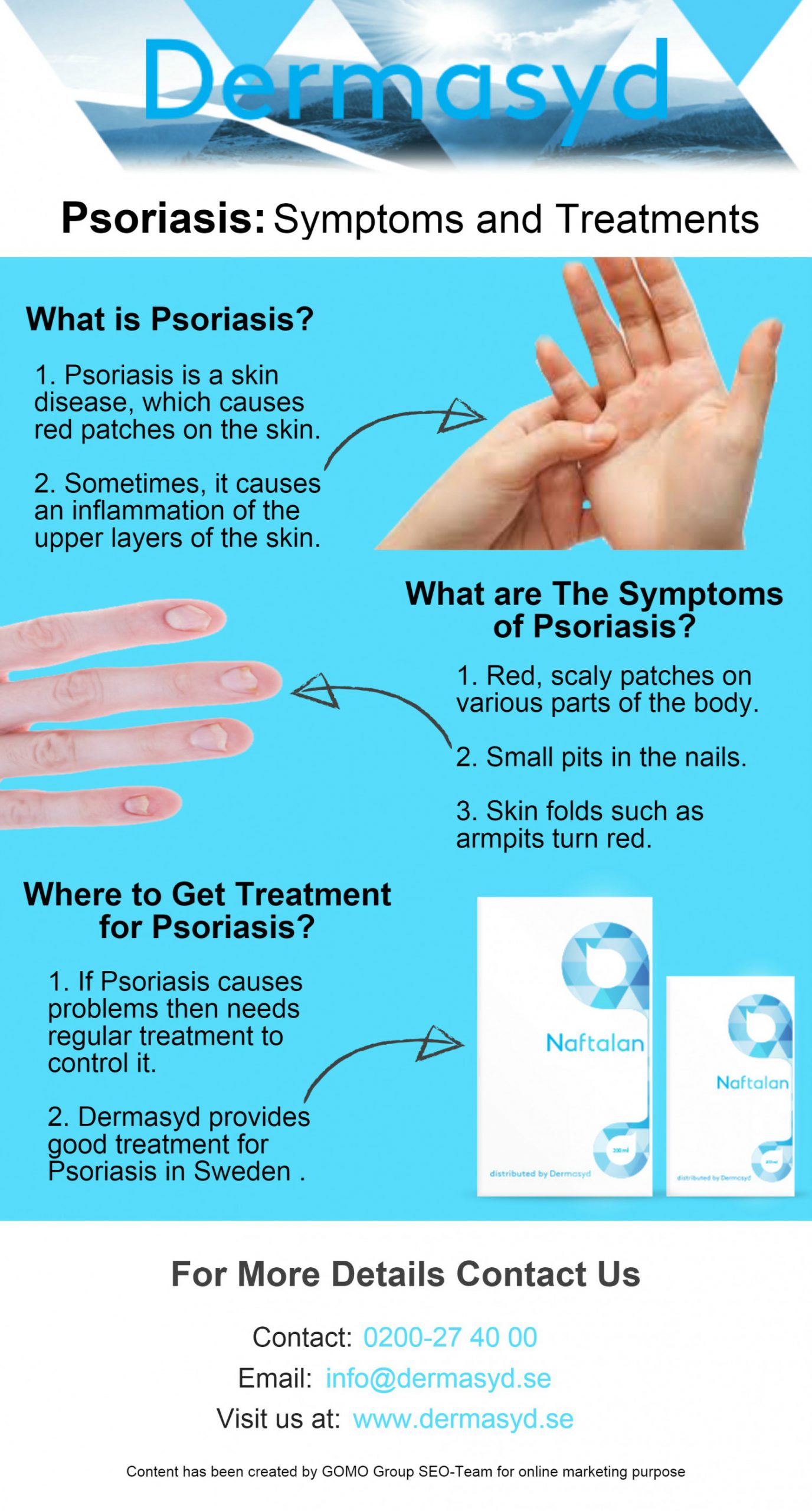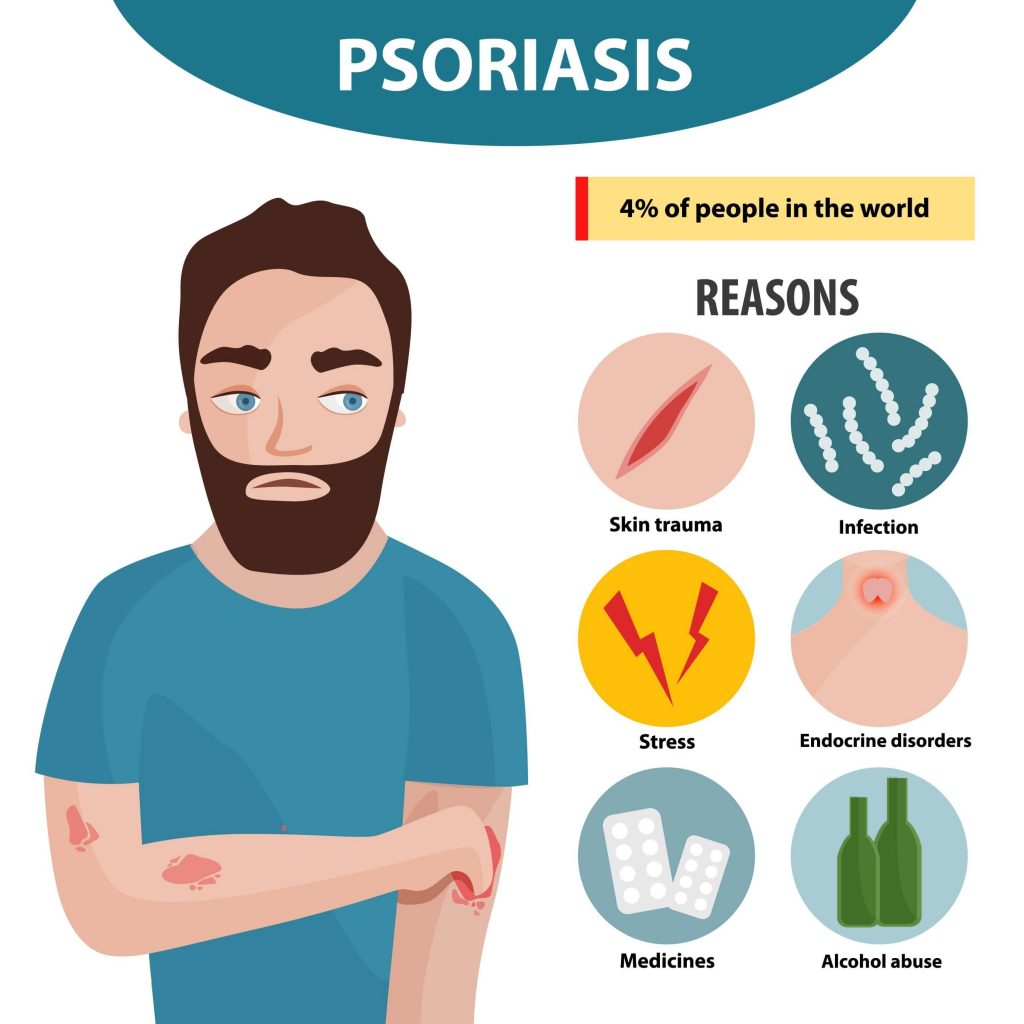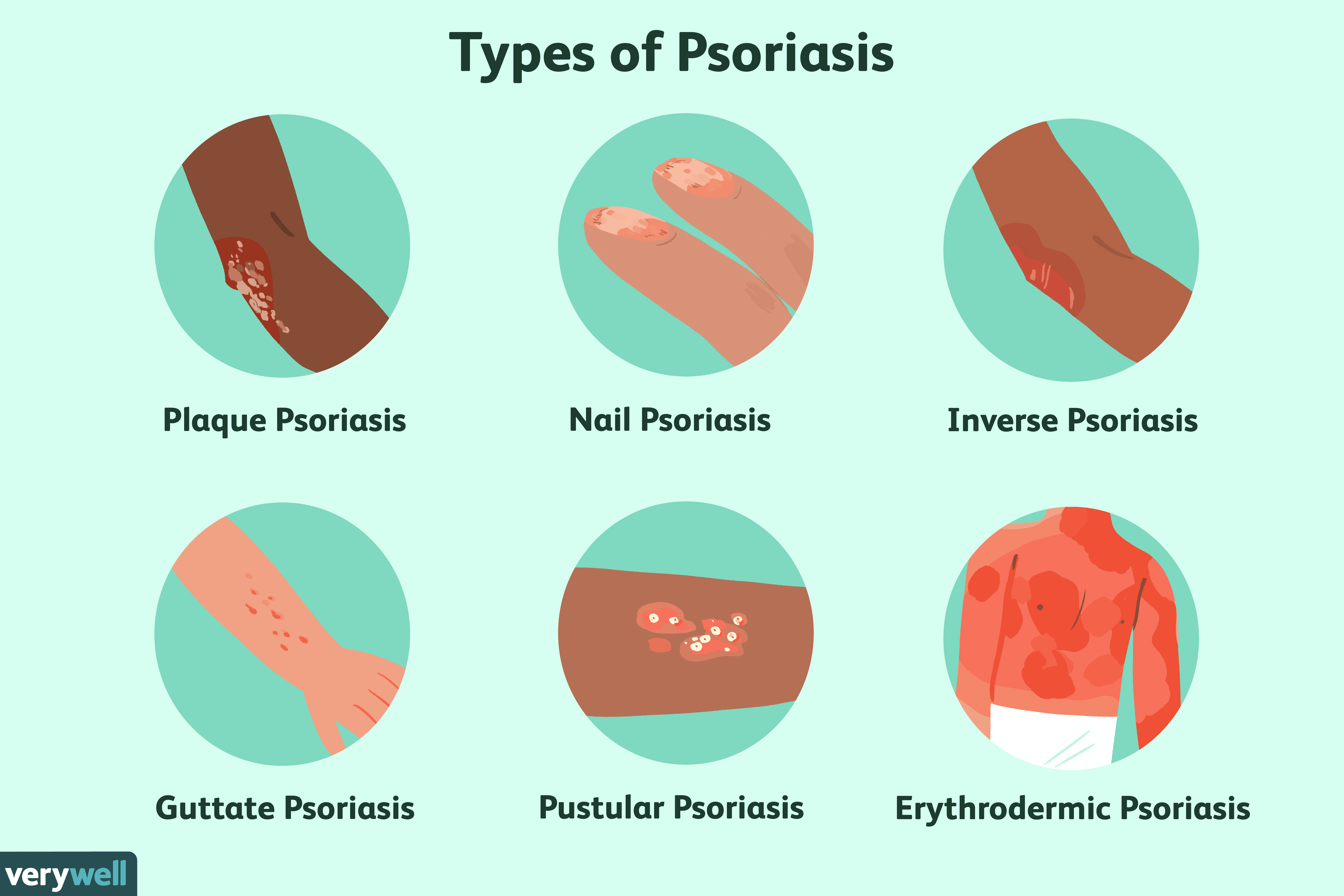Severe And Pervasive Psoriasis
Like most skin conditions, psoriasis can become widespread and very irritating. For instance, plaque psoriasis may cover almost the entire surface of the body.
In extreme cases, inflammation can become so severe that it appears and feels like burns.
Extensive, highly painful, burn-like psoriasis can be life-threatening. This requires immediate attention from a health professional.
Other widespread psoriasis may simply require standard treatment to partially heal or resolve.
What Are Other Types Of Psoriasis
Plaque psoriasis is the most common type. About 80% to 90% of people with psoriasis have plaque psoriasis.
Other, less common types of psoriasis include:
- Inverse psoriasis appears in skin folds. It may look like thin pink plaques without scale.
- Guttate psoriasis may appear after a sore throat caused by a streptococcal infection. It looks like small, red, drop-shaped scaly spots in children and young adults.
- Pustular psoriasis has small, pus-filled bumps on top of the red patches or plaques.
- Sebopsoriasis typically appears on the face and scalp as red bumps and plaques with greasy yellow scale. This type is a cross between psoriasis and seborrheic dermatitis.
Is Psoriasis The Same As Eczema
Psoriasis and eczema are two different skin conditions. They differ in where the disease appears on the body, how much it itches and how it looks. Eczema tends to appear more often behind the knees and inside the elbows. Eczema also causes more intense itching than psoriasis. Many people, especially children, can get both eczema and psoriasis.
Read Also: Vitamin D Cream For Psoriasis
Will Good Dietary Nutrition Help My Psoriasis
A healthy diet is important for well-being and can reduce your risk of many long term illnesses, including coronary heart disease, inflammatory conditions and even cancer. However there is no clear link between what you eat and the severity of psoriasis symptoms.
- The British Nutrition Foundation suggests eating at least 300g oily fish per week for general health . Fish oil has been shown to benefit psoriasis
- Aim to eat more green leafy vegetables, nuts, seeds and wholegrain cereals which also contain important essential fatty acids.
- Cut back on saturated fats and vegetable oils and use more olive oil and rapeseed oil products
- Eat fresh home made foods rather than pre-packaged, convenience foods
- Certain foods may worsen your symptoms. If you experience any adverse effects from foods it may be worth making a note of these to discuss with your doctor and generally for your own avoidance when preparing and eating food
Are There Any Other Alternative Approaches

There are a variety of alternative approaches that can be undertaken alone or in combination with conventional therapies. It is essential if you are considering any alternative approaches to please discuss this with your doctor or healthcare professional as they may be detrimental to your health.
Such alternative approaches could entail Chinese Medicine, Acupuncture, Magnatherapy, Ayurvedic Medicine, Aromatherapy, Homeopathic Medicine, Yoga, Spa Treatments, Shiatsu, and Naturopathy. It is always advisable to fully research and find a reputable qualified practitioner who follows correct protocols for their clients. There are organisations that may be useful to contact for further details and advice. With this information you and your doctor or healthcare professional will be better placed to discuss what is best for you.
Read Also: How To Ease Psoriasis Itching
Is There A Cure For Psoriasis
Unfortunately, not at the moment. Much research is being done and in the last decade great strides have been made in understanding what goes wrong in psoriasis, so there is good cause for optimism. In the meantime there are a number of treatments that are effective in keeping the problem under control. The art of treating psoriasis is finding the best form of treatment for each individual. There is no single solution that is right for everyone.
How Does Psoriasis Affect Quality Of Life
It is widely accepted that psoriasis can severely affect an individuals quality of life although for many the condition is mild and a mere inconvenience. The severity of the disease does not always relate to the severity of anxiety that an individual will have. The area where the psoriasis is located such as the hands or face can severely affect an individuals ability to work or lead to discrimination due to ignorance.
Recommended Reading: Il 17 Inhibitors For Psoriasis
Articles On Scalp Psoriasis
Scalp psoriasis is a common skin disorder that makes raised, reddish, often scaly patches. It can pop up as a single patch or several, and can even affect your entire scalp. It can also spread to your forehead, the back of your neck, or behind and inside your ears.
You canât catch scalp psoriasis from another person. As with other types, we donât know what causes it. Doctors believe it comes from something wrong with your immune system that causes skin cells to grow too quickly and build up into patches. You may be more likely to get scalp psoriasis if it runs in your family.
About half of the estimated 7.5 million Americans with psoriasis – which can affect any skin surface – have it on their scalp. Sometimes the scalp is the only place they have it, but thatâs uncommon.
Scalp psoriasis can be mild and almost unnoticeable. But it can also be severe, last a long time, and cause thick, crusted sores. Intense itching can affect your sleep and everyday life, and scratching a lot can lead to skin infections and hair loss.
What Are The Symptoms Of Guttate Psoriasis
Guttate psoriasis causes tiny bumps called papules. Guttate means resembling drops. So, the papules are drop-like bumps or raised spots. Guttate psoriasis does not occur in stagesthe papules usually appear suddenly on the arms, legs or torso. Less frequently, the bumps affect the face, scalp and ears. The bumps may itch and have the following appearance:
-
Raised and slightly thickened
Don’t Miss: How To Remove Psoriasis Black Marks
How Do You Treat Psoriasis
- For mild versions of psoriasis involving small areas of the body, the doctor will often proscribe topical creams, lotions or sprays.
- Tough or resistant areas of psoriasis may be prescribed a small local injection of steroids.
- For moderate to severe types of psoriasis, involving large areas of the body, systemic or total body treatments such as oral medications, light treatments or injections may be prescribed. Unfortunately, those stronger medications usually have greater associated possible risks and side effects. Many of those with psoriasis will then go on to suffer from psoriatic arthritis too.
Fortunately, there are natural and safe products available to use for both psoriasis and psoriatic arthritis which can dramatically reduce the symptoms of the conditions and even control their outbreaks, making it unnecessary to resort to pharmaceutical medications and treatments.
If you, or someone close to you, suffer from psoriasis, it is worth while doing your own research so that you are well informed.
How Is Psoriasis Treated
Psoriasis is usually treated by a dermatologist . A rheumatologist may also help with treatment. Treatments can include:
- ultraviolet light from the sun or from home or office treatments. But in some children, sunlight can make psoriasis worse.
- creams, lotions, ointments, and shampoos such as moisturizers, corticosteroids, vitamin D creams, and shampoos made with salicylic acid or coal tar
- medicines taken by mouth or injected medicines
A doctor might try one therapy and then switch to another, or recommend combining treatments. It’s not always easy to find a therapy that works, and sometimes what works for a time stops helping after a while.
Recommended Reading: Best Otc Lotion For Psoriasis
Psoriasis Susceptibility Genes Identified By Gwass
Advances in high-throughput genotyping technologies and the completion of the genome-wide database of common genetic sequence variation have paved the way to the identification of a number of psoriasis susceptibility genes by means of GWAS and subsequent meta-analysis . Collectively, these studies identified 36 independent psoriasis-associated regions within individuals of European ancestry , plus five more uniquely associated in the Chinese population .
What Can My Doctor Do To Help

The doctor may decide to start treatment themselves or refer you to a dermatologist for advice. It is essential to seek medical advice because of confusion in diagnosis. Although many treatments are available over the counter from pharmacies your doctor may be able to prescribe particular treatments that are specifically for psoriasis.
Read Also: How To Cure Psoriasis From The Inside Out
What Can Trigger Psoriasis
Plenty of everyday things can act as a trigger, causing psoriasis to appear for the first time. Common psoriasis triggers include:
-
Stress
-
Skin injury, such as a cut or bad sunburn
-
Infection, such as strep throat
-
Some medications, including lithium, prednisone, and hydroxychloroquine
-
Weather, especially cold, dry weather
-
Tobacco
-
Alcohol
These triggers can also cause psoriasis flare-ups. Different people have different triggers. For example, periods of intense stress may trigger your psoriasis but cold weather may not.
Thats why its so important for people who have psoriasis to know what triggers their psoriasis. Avoiding triggers can reduce psoriasis flares.
Youll find common triggers and what you can do to avoid them at: Are triggers causing your psoriasis flare-ups?
If you think you have psoriasis, its important to find out. Treatment can help relieve your discomfort and lead to clearer skin. You can find out how board-certified dermatologists diagnose and treat psoriasis at: Psoriasis: Treatment.
Related AAD resources
1 Gottlieb A, Korman NJ, et al. J Am Acad Dermatol 2008 58:851-64.2 Alexis AF, Blackcloud P. J Clin Aesthet Dermatol. 2014 7:16-24.
ImageGetty Images
References Alexis AF, Blackcloud P. Psoriasis in skin of color: epidemiology, genetics, clinical presentation, and treatment nuances. J Clin Aesthet Dermatol. 2014 7:16-24.
All content solely developed by the American Academy of Dermatology
What Are Symptoms Of Psoriasis
Psoriasis symptoms may worsen for a few weeks or months and then subside . Psoriasis commonly affects the scalp, elbows, and knees.
Symptoms of psoriasis may include:
- Patches of skin that are:
- Thick, dry, red, or dark
- With silvery-white scales that itch or burn
- Dry, cracked skin that itches or bleeds
You May Like: Over The Counter Psoriasis Cream
Injuries Or Damage To Your Skin
Though a minor cut or scrape may not seem like a big deal, it can potentially lead to a flare-up according to Dr. Feinberg, who says that skin lesions are a common source of local flares.
“Almost anything that causes damage to an area of skin can cause psoriasis to come out when we’re dealing with an overall flare-up of the disease,” he explains. “It can be any type a small cut or injury.”
Getting a sunburn can also be the cause of flares. As AAD points out, “even a mild sunburn can worsen existing psoriasis and cause new psoriasis to form.”
Rethink The Ink: Tattoos
Tattoos and Psoriasis
You may like the look of tattoos, but they may not be a good idea if you have psoriasis. Piercing the skin and injecting dye underneath the skin is associated with skin trauma that may trigger psoriasis. Some people who have psoriasis develop new psoriatic lesions 10 to 14 days after getting a tattoo. Tattooed skin may also become infected. Skin infections are also potential psoriasis triggers.
Skin Trauma and Psoriasis
Don’t Miss: What Oil Is Good For Psoriasis
What Causes Psoriasis Outbreaks
Psoriasis outbreaks differ from person to person. No one knows exactly what causes flare-ups. Common psoriasis triggers may include:
- Skin injury .
- Streptococcal or other infection that affects the immune system.
- Certain prescription medications .
- Cold weather, when people have less exposure to sunlight and humidity and more to hot, dry indoor air.
What Happens If My Gp Cannot Help
If you are referred for further treatment or advice it is likely to be to outpatients at your local hospital where a consultant dermatologist or a specialist dermatology nurse will assess you or it may be to another General Practitioner with enhanced role often referred to as GP with special interest .
It is likely that you may be offered the same treatment that your GP has already given you or other treatments that your GP is unable to prescribe.
You May Like: Is Psoriasis A Communicable Disease
What Else Should I Ask My Healthcare Provider
If you have psoriasis, ask your healthcare provider:
- How can I prevent outbreaks and control symptoms?
- What medication will work best for me?
- What else should I do to improve symptoms?
- What are my options if creams dont work?
- Will psoriasis ever go away?
A note from Cleveland Clinic
Psoriasis, an itchy skin condition, can come and go throughout your life. Its related to an overactive immune response and is not contagious. If you have skin changes that arent going away, talk to your healthcare provider. There is no cure for psoriasis, but psoriasis treatments can improve symptoms. Your provider may prescribe a special cream or moisturizer or medications. Other therapies are available if creams or medicines dont work. Maintaining your overall health will also help improve symptoms.
Last reviewed by a Cleveland Clinic medical professional on 10/17/2020.
References
How Can Parents Help

For some children, psoriasis is just a minor inconvenience. For others, it is a difficult medical condition.
To manage symptoms and make outbreaks less likely, your child should:
- Wash hands well and often and stay away from people who are sick to prevent infections.
- Manage stress through exercise, yoga, or meditation.
- Not smoke or drink alcohol.
- Keep a healthy weight. People who are overweight tend to have more severe psoriasis symptoms.
Kids and teens with psoriasis may feel uncomfortable with the way their skin looks. Help your child understand that psoriasis is common and treatments can help.
Whether your child’s psoriasis is mild or severe, learn about the condition together. Offer to help find a therapist or join a support group if that might help. Talk to your doctor or check websites like:
Don’t Miss: Scalp Psoriasis On Black Skin
Will Dietary Supplements Help With My Psoriasis
There are a lot of dietary supplements available over the counter and available on line. Please remember that some of these products may not be of a high quality or reputable standard. Please always consult your doctor or healthcare professional before embarking on any supplementation to avoid overdosing in vitamin nutrients as these may cause undesired side effects.
What About Herbal Remedies
Again there are numerous products on the market and these should be used with caution and under strict supervision of your doctor or healthcare professional as these too, taken in combination with any other medications may have adverse side effects causing unnecessary discomfort. One in particular is St John’s Wort which can in some cases cause increased sensitivity to light which can or may cause problems for some people undergoing for their psoriasis. Always advise your doctor or healthcare professional on any herbal or dietary supplements that you are taking or may wish to take as this may be a factor in future prescribing for your condition.
Recommended Reading: How Do I Get Rid Of Psoriasis On My Scalp
Biomarker Discovery In Psoriasis: State Of The Art And Innovative Discovery Approaches
The identification of disease-specific molecular patterns or, more precisely, biomarkers, is of invaluable usefulness in the clinic for disease prognosis, therapy response prediction, and patient stratification. Biomarkers can also be used to identify disease risk factors, guide further investigation, and, overall, contribute to better elucidate disease etiopathogenesis. Using a variety of hypothesis-driven experimental approaches, candidate biomarkers have been described for psoriasis, although none of them has so far met the sensitivity, specificity, and accuracy criteria that would allow their translation into clinical use .
An overall increase in proinflammatory mediators is detectable in skin lesions, in particular, prominence for molecules of the IL-23/IL-17 axis . Nonetheless, the biggest changes at tissue levels are observed in KC-related molecules, in keeping with their altered proliferation and differentiation and increased production of antimicrobial peptides.
Finally, based on the growing list of psoriasis susceptibility genes identified by GWASs, genetic biomarkers are being investigated. SNPs in genes involved in drug transport and metabolism , as well as in the regulation of TNF-induced pathways , are associated with improved metotrexathe or anti-TNF treatment response , calling for further pharmacogenetic studies.
Eczema In Inconvenient Places
Eczema can occur in many inconvenient places especially for infants. Diapers and baby creams may irritate sensitive skin, causing extreme diaper rashes. In some cases, the eczema covers the entire area that comes into contact with a diaper.
Hypersensitivity to the material of a diaper or the creams used in washing the area can aggravate skin. Switching to soft cotton diapers or using a different cleanser may help ease eczema in the genital area for infants.
Adults with eczema in sensitive areas may need to change laundry detergents, cleansers, and fabrics.
Don’t Miss: Skin Care Routine For Psoriasis